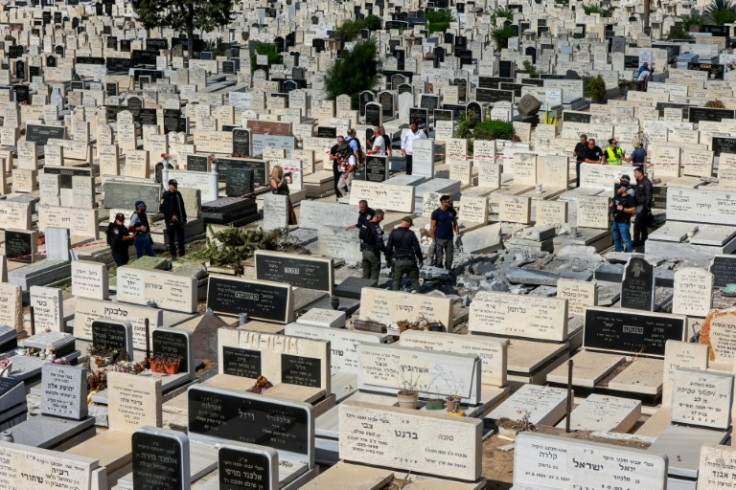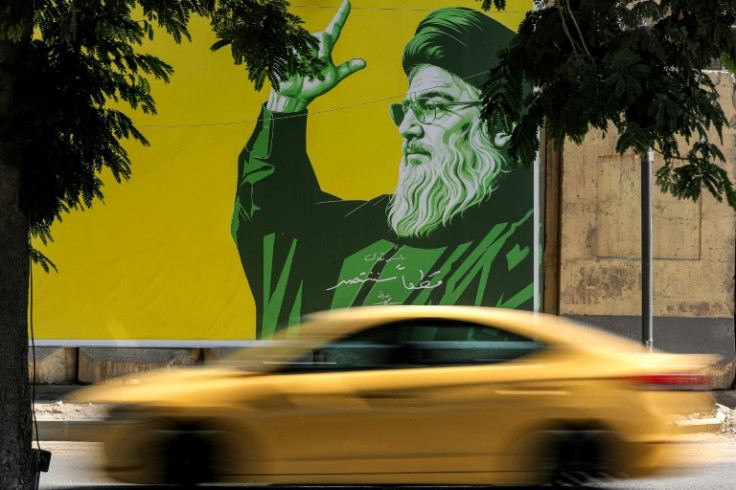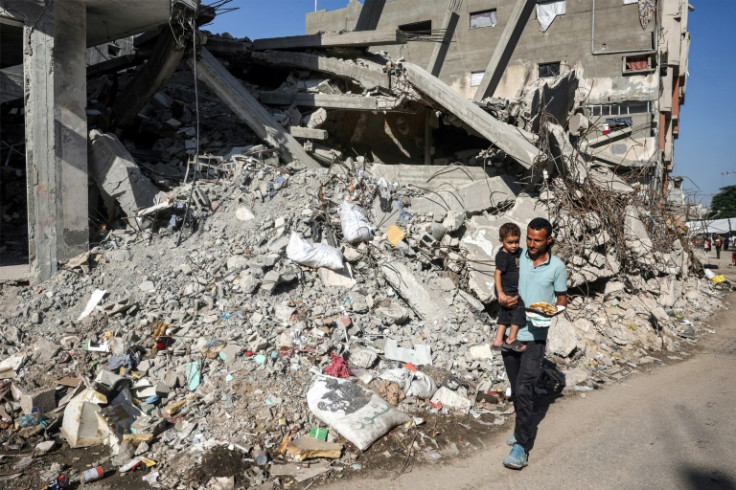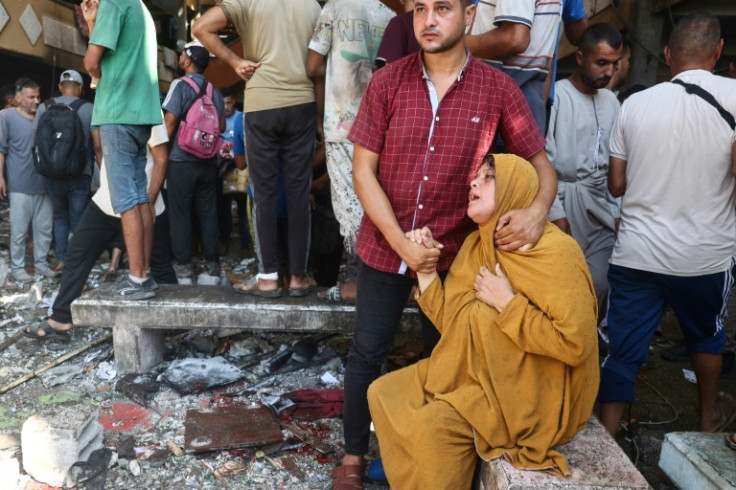
Rescuers in Gaza said Israel conducted a deadly air strike Thursday on a school housing families displaced by the war, though the Israeli military said it was a Hamas command centre.
While Israel has widened its military operations to Lebanon since last month, pounding Hezbollah strongholds around the country and battling militants near the border, it has also escalated in recent days its strikes on Gaza.
The strike on Rafida School in central Gaza, which according to the Palestinian Red Crescent killed 28 people and wounded 54 others, follows the widening of Israeli operations in the north of the territory.
The Israeli army said the strike targeted Palestinian militants operating from a command and control centre "embedded inside a compound that previously served as the (Rafida) School".
Israel accuses Hamas of hiding in school buildings and other civilian infrastructure where thousands of Gazans have sought shelter -- a charge the Palestinian militants deny.
The Gaza war began on October 7 last year, when Hamas militants stormed across the border and carried out the worst attack in Israeli history.
The militants took 251 people hostage in an attack that resulted in the deaths of 1,206 people, most of them civilians, according to an AFP tally based on official Israeli figures.
According to the Hamas-run territory's health ministry, 42,065 people have been killed in Gaza since the start of the war, a majority civilians, figures the UN has described as reliable.
While Israel received international support in its bid to crush Hamas and bring the hostages home, it has faced criticism over its conduct of the war.
Speaking to reporters about the humanitarian situation in northern Gaza, US State Department spokesman Matthew Miller said Washington was "incredibly concerned" as Israel tightens its siege.
"We have been making clear to the government of Israel that they have an obligation under international humanitarian law to allow food and water and other needed humanitarian assistance to make it into all parts of Gaza," he said.
Israel expanded a military operation around Jabalia in northern Gaza, where about 400,000 people are trapped, according to Philippe Lazzarini, head of the UN agency for Palestinian refugees.
Lazzarini said on X there was "no end to hell" in the area and that "recent evacuation orders from the Israeli authorities are forcing people to flee again & again".
The army surrounded Jabalia and its refugee camp at the weekend and shelled it on Wednesday, preventing the delivery of aid, Gaza's civil defence agency said.
The United States has also urged Israel to avoid Gaza-like military action in Lebanon, after Prime Minister Benjamin Netanyahu said it could face "destruction" like the Palestinian territory.
The comments came after a phone call between Netanyahu and US President Joe Biden, their first in seven weeks.
The White House said Biden told Netanyahu to "minimise harm" to civilians in Lebanon, particularly in "densely populated areas of Beirut".
"There should be no kind of military action in Lebanon that looks anything like Gaza and leaves a result anything like Gaza," Miller said.
Israel has since September 23 pounded Hezbollah strongholds around Lebanon in a campaign that, according to an AFP tally of health ministry figures, has killed more than 1,200 people and displaced more than a million others.
On Thursday, the UN peacekeeping force in Lebanon accused Israel of firing on an observation tower at its headquarters and wounding two of its members.
The Israel-Hezbollah war was sparked by Hezbollah's cross-border fire in support of its Palestinian ally Hamas, following the October 7 attack.
The Hezbollah attacks forced tens of thousands of Israelis to flee their homes over the past year, and Netanyahu has promised to fight until they can return.
On Tuesday, he said in a video address to the people of Lebanon: "You have an opportunity to save Lebanon before it falls into the abyss of a long war that will lead to destruction and suffering like we see in Gaza."
"Free your country from Hezbollah so that this war can end."
In Beirut, many people are sleeping out in the streets after Israeli air strikes.
Ahmad, a 77-year-old who did not want to give his family name for fear of reprisals, said he had a message for Hezbollah.
"If you can't continue to fight, announce you are withdrawing and that you have lost. There is no shame in losing," he said.
But Raed Ayyash, a displaced man from the south of the country, said he hoped Hezbollah would keep fighting.
"We hope for victory, and we will never give up."
Biden and Netanyahu's call had been expected to focus on Israel's response to last week's missile barrage by Iran, which backs both Hezbollah and Hamas.
Iran fired about 200 missiles at Israel in what it said was retaliation for the killing of Hezbollah leader Hassan Nasrallah and Hamas leader Ismail Haniyeh. Most were intercepted by Israel or its allies.
Israel's Defence Minister Yoav Gallant said: "Our attack on Iran will be deadly, precise and surprising. They will not understand what happened and how it happened."
Biden has cautioned Israel against attempting to target Iran's nuclear facilities, which would risk major retaliation, and opposes striking oil installations.
With Hezbollah militants locked in clashes with Israeli troops in southern Lebanon, the group said it destroyed an Israeli tank advancing on the border on Thursday.
A day earlier, two people were killed by suspected Hezbollah rocket fire in the northern Israeli town of Kiryat Shmona, while Israel intercepted two projectiles fired towards the coastal town of Caesarea, officials said.
Lebanon's health ministry said at least four people were killed in an Israeli strike on a village southeast of Beirut, an area so far largely spared from Israeli bombing.
Israel's military said Wednesday its troops "eliminated terrorists during close-quarter encounters and in aerial strikes" over the previous 24 hours, adding "100 Hezbollah terror targets were destroyed".
According to a toll from the Israeli army on Wednesday, 13 of its soldiers have died since ground operations inside Lebanon began.










